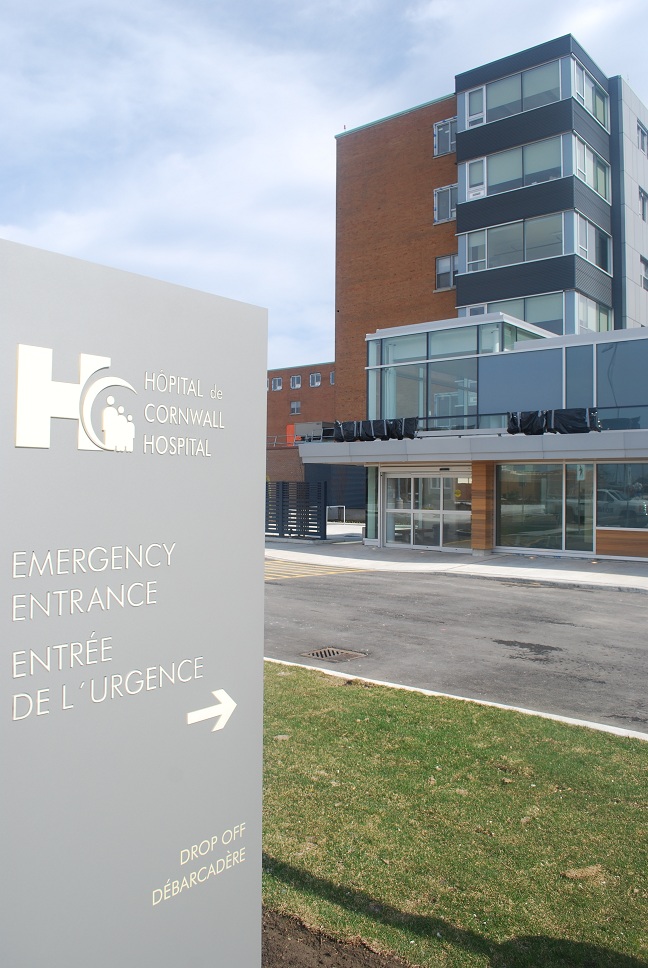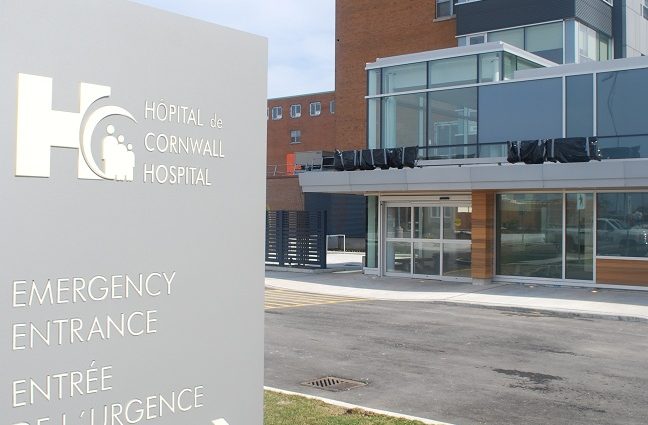 CFN – Cornwall Community Hospital reacted quickly to a mould issue that had evolved in the critical care unit of the hospital.
CFN – Cornwall Community Hospital reacted quickly to a mould issue that had evolved in the critical care unit of the hospital.
Hospital officials sent us the following in response to queries CFN made to the hospital after we had several emails and calls.
1. Why is the Critical CareUnit(CCU)being temporarily relocated?
The CCU has been temporarily relocated because we have received a report from our consultants indicating that there is mould growth on the interior of the Air Handling Unit(AHU) which supplies the air to the CCU.
2. When was this report received and why was the inspection completed?
Staff in the area reported a“musty”smell within the CCU, maintenance staff conducted an investigation on May9th and based on their findings an environmental consultant was retained to complete a review.
The consultant’s report was receivedonMay13thand a decision to relocate the unit was made and communicated on that day. The CCU was relocated on May16.
3. What were the findings and recommendations of the consultant?
The consultant found mould growth on the insulation within the air handling units that service the Critical Care Unit. These findings are not expected to pose a health risk;however, given that our patients are already sickwith decreased immune systems the following recommendations were made:
Turn off the AHU supplying the CCU – completed
Notify infection control and joint health and safety–completed
Relocate the patients –completed
Work with engineers to:
o Identify all areas serviced by the AHU–completed
o Determine if the AHU needs replacement–in process
o Determine how to repair the AHU to eliminate the opportunity for moisture build up and mould re occurrence–in process
4. When was this Air Handling Unit installed and why was this not addressed last year when we relocated the unit to install new windows? What caused this issue?
This AHU was installed in 1989 at the same time as the JMP was constructed. The unit was not in need of replacement when the area was recently renovated nor was there an issue with mould at that time.
The cause of this issue is yet to be determined. This information will be communicated as we learn more following a thorough inspection and report by our engineering consultants.
5. What are the next steps and what is the timing?
Our consulting engineers will be on site Tuesday May21st to begin their investigation. They will provide us with a report and recommendations on how we manage this issue. From these recommendations we will prepare a plan to resolve the issue and prepare a timeline for the work to be completed.
We will be communicating the details of the work required as well as a timeline for completion.
6. Is there any risk to my health?And what should I do if I have concerns?
From all the information available we do not expect any health risk to our staff or patients, however,if you have concerns we encourage you to contact Nancy Ann Bush,Manager, Infection Prevention and Control at 3344(patient related)or Stephen Harley,Occupational Health and Safety Coordinator at 4244(staff related).
We also encourage you to contact your own primary care physician if you have specific health concerns.
7. I have heard that there has been an aircomfort issue in the CCU for a very long time,is that true?
The question of air quality in the CCU has been brought to our attention in the past. In fact there was an engineer’s report prepared February11,2013 recommending that the size of the duct work be expanded to provide for additional fresh air to the space. A strategy was being developed to complete this construction. This would likely involve a temporary move strategy
as well. The mould issue was not identified at that time(February 2013).
What do you think Cornwall? You can post your comments below.


pfft. why am i not surprised?
Why is the City of Cornwall waiting for a disaster to happen. Do they want people to contract Legionnaires Disease before they act?
Did they move the patients to the room that some how got missed on the plan, the one in the blueprints that is no where to be found? Hmmmm?
Musty smell? You have got to be kidding. As an analogy I present a story of a caregiver who knew there was something wrong with her patient’s black necrotic feet, yet did not notice that gangrene had set in.
If it stinks it’s foul. That hospital is a known infection and could have been rebuilt cheaper than the renos, which we now know are toxic. Don’t give up on the General folks.
Mold can make people very sick and it comes in different colors from black, grey and white that I have seen and smelled. Sometimes people will change their windows and doors and make a place too air tight where a house or a building cannot breathe and mold sets in. Some places have water seapage and this too causes mold. This has to be delt with before it spreads.
“Staff in the area reported a“musty”smell within the CCU”
Well that musty smell is throughout the hospital and it is” its senior management “.
But that’s the kind of smell you cant get rid of no matter how toxic it is to its environment.
As a former employee of CCH this SLOW reaction to a potential disaster does not surprise me at all. Why would it take 7 days to relocate pt’s, this is totally unacceptable. The patients & staff were placed at risk for an infectious disease.
I worked in CCU & I remember an incident when we smelled something odd. Turns out pigeons were nesting in the air handler, yup, welcome to bird disease!!!!
Patient & staff safety are a low priority at CCH.
Yep……our hospital should be shut down. It is terrible what goes on there. If one believes all the BS, it surely makes one wonder how anyone can come out of the CCH alive.
So Stella you want to shut down the hospital, well, be careful what you wish for….just sayin….